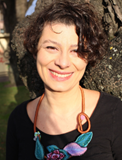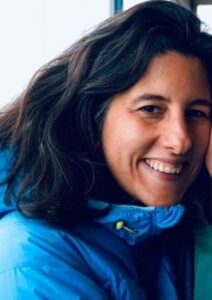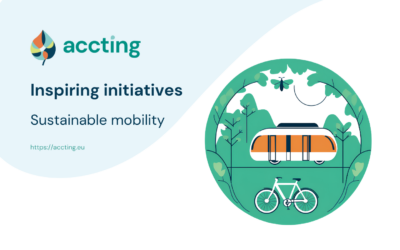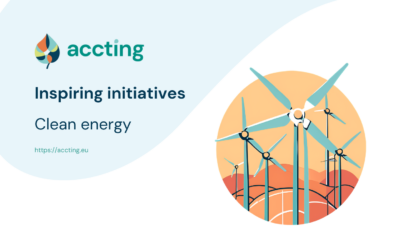The plus in gender+ is an invitation to be curious about the complex ways in which gender dynamically interacts with “race,” class, sexuality, (dis)ability, ethnicity, religion, and citizenship status (among others), in shaping human lives and inequalities in contemporary society. From an ecofeminist perspective, it is also an invitation towards a more-than-human, multispecies framework of analysis (Shiva and Mies 2014).
Gender Studies (typically named Women’s Studies in the 1970s) grew out of the simple, but revolutionising, question “Where are the women?” (Enloe 2004). This centred on researching creatively to unearth the hidden lives of women in different realms of life and history, thereby also making visible the workings of gender inequality. From the early days of gender studies and the feminist movement, some scholars and activists emphasised the need to analyse gender in connection with other inequality grounds, most prominently race, class and sexuality (Combahee River Collective 1977, hooks 1981, Anzaldua 1981, Jordan 1982, Lorde 1984). Yet, in the 1970s and 80s, much of gender studies in Europe and North America suffered from inadequate attention to the plurality of women’s lives (beyond white, middle class, heterosexual women), and the complex ways in which gender is shaped by other inequality grounds, as well as the histories of colonialism and racism.
In the early 1990s, African-American feminist scholar Kimberlé Crenshaw coined the term “intersectionality,” offering a powerful framework to analyze the workings of gender, race and class in relation to gender-based violence. Since then, “intersectionality” has become a generative “buzzword” (Davis 2008), shaping the course of feminist theorising and activism globally.
In recent years, the term gender+ has also been gaining prominence in feminist policy, scholarship and activism as a way of situating gender within these multiple inequalities (Verloo 2006 and 2013, Strid et.al 2013) and of making intersectionality integral to all analyses of gender. In a similar vein, there are recent adoptions of the + (plus) in such formulations as “feminist+ solidarity” as “an invitation to co-imagine an even better story of feminist solidarity,” one that is not only intersectional, but also more-than-human, emphasizing multispecies interconnectedness (Altınay and Petö 2022).
ACCTING adopts a gender+ perspective to explore the co-constitution of multiple inequalities in the context of the climate crisis and the European Green Deal. From the mapping of Bottom-Up Initiatives to the analyses of Narrative Interviews, from the drafting of Policy Recommendations to the design of Pilot Actions, the gender+ approach helps us dive deep into the complex inter-workings of multiple inequalities.
For a conversation on the significance of a gender+ feminist methodology for environmental and climate research, see For a Better Story of Gender+ Research: Feminist Methodologies with Professor Joni Seager.
To know more:
Altınay, A. G. & Pető, A. (2022). Feminist+ solidarity as transformative politics. European Journal of Women’s Studies, 29(4), 477–488.
Anzaldua, G. & Moraga, C. (1981) This Bridge Called My Back: Writings by Radical Women of Color. Watertown: Persephone Press.
Brah, A. & Phoenix, A. (2004) ‘Ain’t I A Woman? Revisiting Intersectionality’, Journal of International Women’s Studies 5(3): 75–87 .
Collins, Patricia Hill, and Sirma Bilge. (2020) Intersectionality. 2nd Edition. Polity.
Combahee River Collective (1977) A Black Feminist Statement’, reprinted pp. 63–70 in Linda Nicholson (ed.) The Second Wave: A Reader in Feminist Theory. New York: Routledge, 1997.
Crenshaw, K. W. (1989) ‘Demarginalizing the Intersection of Race and Sex: A Black Feminist Critique of Antidiscrimination Doctrine, Feminist Theory and Antiracist Politics’, University of Chicago Legal Forum 1989 (1): 139–167.
Davis, K. (2008) Intersectionality as Buzzword. A sociology of science perspective on what makes a feminist theory successful. Feminist Theory 9(1): 67-85.
Enloe, C. (2004) The Curious Feminist: Searching for Women in a New Age of Empire. Berkeley: University of California Press.
Georgis D. (2013) The Better Story: Queer Affects from the Middle East. Albany: State University of New York Press.
hooks, b. (1981) Ain’t I a Woman?: Black women and feminism. Boston: South End Press.
Jordan, J. (1985) On Call: Political Essays. Boston: South End Press.
Lorde, A. (1984) Sister Outsider: Essays and Speeches. New York: The Crossing Press.
Lutz, H., Vivar, V. T. H. & Supik, L., eds. (2011) Framing Intersectionality: Debates on a Multi-Faceted Concept in Gender Studies. London: Routledge.
Shiva, Vandana and Maria Mies (2014). Ecofeminism. 2nd edition. London: Zed Books.
Strid, S. Walby, S. & Armstrong, J. (2013). Intersectionality and multiple inequalities. Social Politics 20(4), 558–581.
Verloo, M. (2006). Multiple Inequalities, Intersectionality and the European Union. European Journal of Women’s Studies, 13(3), 211–228.
Verloo, M. (2013). Intersectional and cross-movement politics and policies. Signs 38(4), 893–891.
Walby, S. (2007). Complexity theory, systems theory, and multiple intersecting social inequalities. Philosophy of the Social Sciences, 37(4), 449–470.
About the authors
 Ayşe Gül Altinay is professor of Anthropology and former Director of Sabancı University Gender and Women’s Studies Center of Excellence (SU Gender), Istanbul. She leads the Sabancı University team in the ACCTING project. Having published extensively on militarism, gender-based violence and gendered memories of war and political violence, Altınay’s current research focuses on feminist+ solidarity and transformative activism. Among her recent books are Gendered Wars, Gendered Memories: Feminist Conversations on War, Genocide and Political Violence (co-edited with Andrea Petö, Routledge, 2018) and Women Mobilizing Memory (co-edited with Maria Jose Contreras, Marianne Hirsch, Jean Howard, Banu Karaca and Alisa Solomon, Columbia University Press, 2019). Besides ACCTING, she is engaged in two other Horizon 2020 projects: GEARING Roles (SwafS – Gender Equality Actions in Research Institutions to traNsform Gender ROLES) and RESISTIRÉ (RESpondIng to outbreakS through co-creaTIve inclusive equality stRatEgies).
Ayşe Gül Altinay is professor of Anthropology and former Director of Sabancı University Gender and Women’s Studies Center of Excellence (SU Gender), Istanbul. She leads the Sabancı University team in the ACCTING project. Having published extensively on militarism, gender-based violence and gendered memories of war and political violence, Altınay’s current research focuses on feminist+ solidarity and transformative activism. Among her recent books are Gendered Wars, Gendered Memories: Feminist Conversations on War, Genocide and Political Violence (co-edited with Andrea Petö, Routledge, 2018) and Women Mobilizing Memory (co-edited with Maria Jose Contreras, Marianne Hirsch, Jean Howard, Banu Karaca and Alisa Solomon, Columbia University Press, 2019). Besides ACCTING, she is engaged in two other Horizon 2020 projects: GEARING Roles (SwafS – Gender Equality Actions in Research Institutions to traNsform Gender ROLES) and RESISTIRÉ (RESpondIng to outbreakS through co-creaTIve inclusive equality stRatEgies).

Dr. Esin Düzel is a Project Specialist for the EU Horizon 2020 project ACCTING, at Sabancı University´s Gender and Women´s Studies Excellence Center, and an anthropologist with a PhD from University of California, San Diego. Her work is concerned with affect, morality, and body in wars and conflicts, feminist and everyday peace, and future studies (with a focus on utopias, disasters, and biodiversity). She lives in Helsinki, Finland.

Burcu Borhan Türeli is a Project Specialist for the ACCTING project and works at Sabancı University´s Gender and Women´s Studies Excellence Center. She has worked at various national and international universities. Her research interests include juvenile literature, alternative forms of schooling, rural gender transformation, agri-food relationships, food security and values. She lives in Çanakkale, Turkey.



